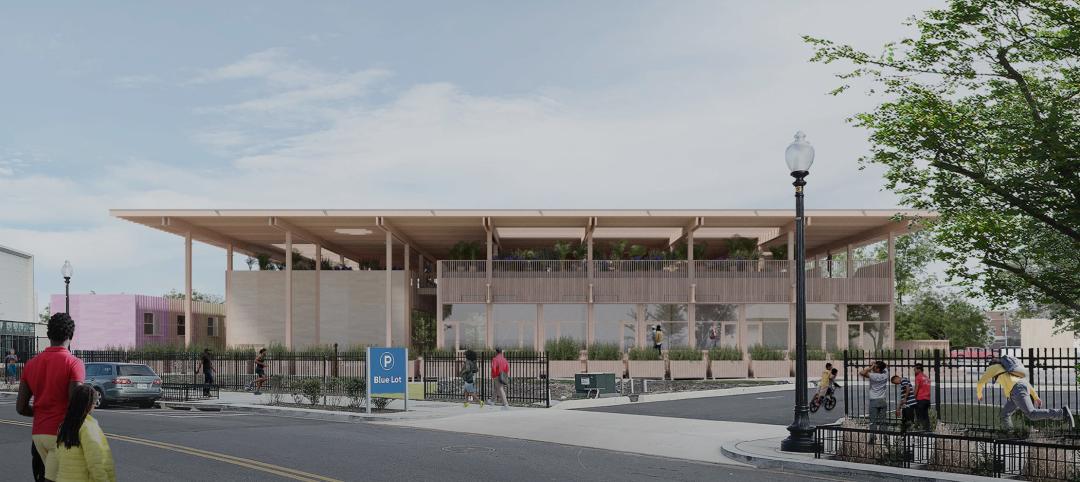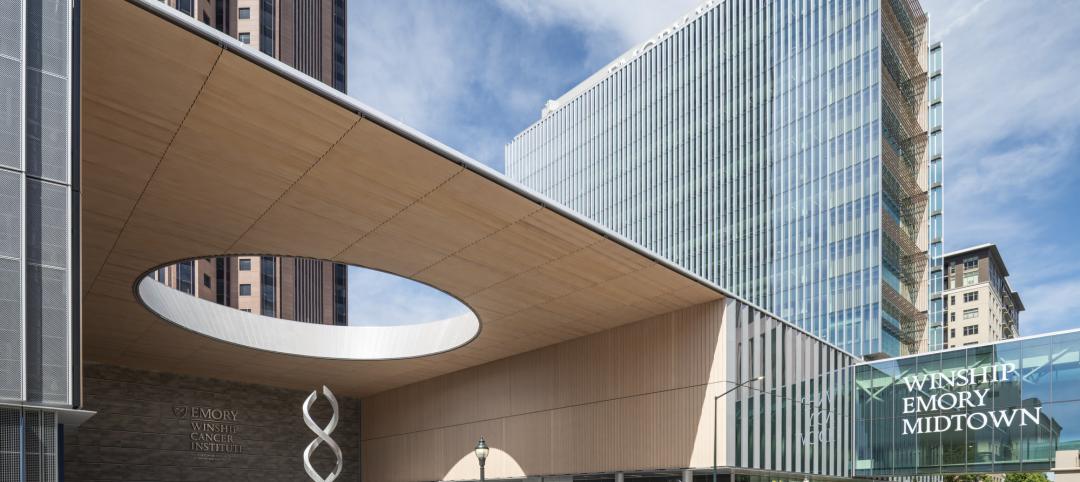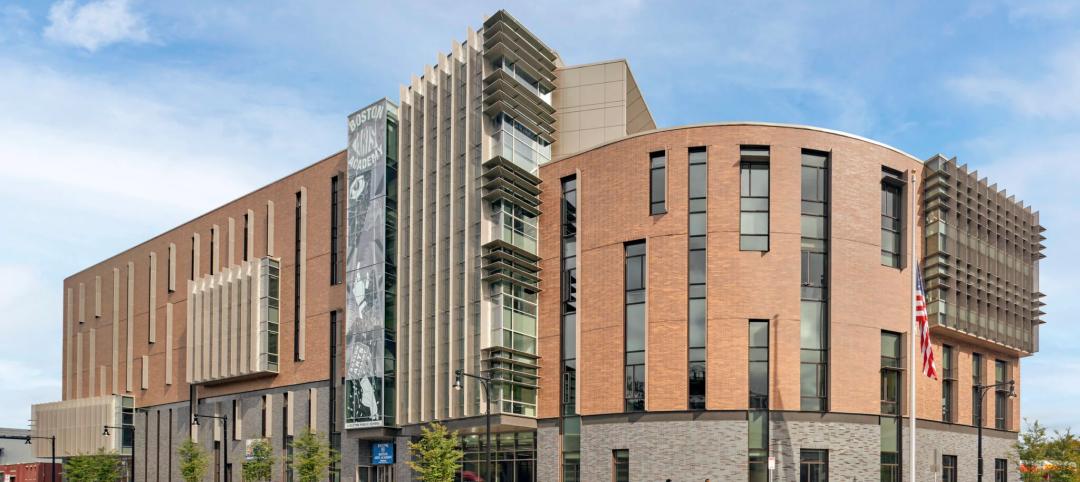The National Council of Architectural Registration Boards (NCARB) has launched the second phase of its revised certification path for architects without a degree from an accredited program. This newest path comes as part of a multi-year effort to streamline NCARB programs and initiatives to be more inclusive of individuals outside of the traditional path to licensure, while maintaining the rigor necessary to protect the public’s health, safety, and welfare.
Through the new NCARB Certificate Portfolio, architects licensed in a U.S. jurisdiction who hold any education other than an architecture-related degree—including those who do not have a college degree—can satisfy the Certificate’s education requirement by completing an online portfolio documenting learning through experience. The first phase, which launched in February 2017, enables architects with a four-year, architecture-related degree to satisfy the same requirement by documenting two times the Architectural Experience Program’s™ (AXP™) hours.
“Professional mobility is a goal of many practicing architects,” said NCARB President Kristine A. Harding, NCARB, AIA. “This revised path makes that goal achievable for a broader range of licensed individuals, while maintaining the quality standards expected by our boards and the public.” Together, these alternative paths form the successor to the Broadly Experienced Architect (BEA) Program, which was retired in 2016.
The NCARB Certificate is a valuable credential for architects that facilitates reciprocal licensure across the 54 U.S. jurisdictions and several countries, among other benefits. To qualify for certification, applicants must meet the NCARB Education Standard, traditionally done by earning a professional degree in architecture from a program accredited by the National Architectural Accrediting Board (NAAB).
Both the NCARB Certificate Portfolio and two times AXP option are offered at no additional charge to active NCARB Record holders and eliminates the BEA’s $5,000 review fee. It also facilitates a shorter, more objective review process than the previous program, allowing applicants to link exhibits in the portfolio to specific areas outlined in the NCARB Education Standard. Applicants will also need to meet NCARB’s experience and examination requirements to earn an NCARB Certificate.
U.S. architects interested in pursuing certification through the portfolio must have at least three years of continuous licensure in any U.S. jurisdiction without disciplinary action, and fall into one of two categories:
-
Architects with post-secondary education who have obtained 64 or more semester credit hours. These applicants are required to obtain an EESA evaluation and submit a portfolio to address any deficiencies.
-
Architects with less than 64 semester credit hours of post-secondary education. These applicants are not required to obtain an EESA and must address all education requirements through a portfolio.
Related Stories
Retail Centers | Jun 2, 2023
David Adjaye-designed mass timber structure will be a business incubator for D.C.-area entrepreneurs
Construction was recently completed on The Retail Village at Sycamore & Oak, a 22,000-sf building that will serve as a business incubator for entrepreneurs, including emerging black businesses, in Washington, D.C. The facility, designed by Sir David Adjaye, the architect of the National Museum of African American History and Culture, is expected to attract retail and food concepts that originated in the community.
Mixed-Use | Jun 1, 2023
The Moore Building, a 16-story office and retail development, opens in Nashville’s Music Row district
Named after Elvis Presley’s onetime guitarist, The Moore Building, a 16-story office building with ground-floor retail space, has opened in Nashville’s Music Row district. Developed by Portman and Creed Investment Company and designed by Gresham Smith, The Moore Building offers 236,000 sf of office space and 8,500 sf of ground-floor retail.
Healthcare Facilities | Jun 1, 2023
High-rise cancer center delivers new model for oncology care
Atlanta’s 17-story Winship Cancer Institute at Emory Midtown features two-story communities that organize cancer care into one-stop destinations. Designed by Skidmore, Owings & Merrill (SOM) and May Architecture, the facility includes comprehensive oncology facilities—including inpatient beds, surgical capacity, infusion treatment, outpatient clinics, diagnostic imaging, linear accelerators, and areas for wellness, rehabilitation, and clinical research.
K-12 Schools | May 30, 2023
K-12 school sector trends for 2023
Budgeting and political pressures aside, the K-12 school building sector continues to evolve. Security remains a primary objective, as does offering students more varied career options.
Multifamily Housing | May 30, 2023
Boston’s new stretch code requires new multifamily structures to meet Passive House building requirements
Phius certifications are expected to become more common as states and cities boost green building standards. The City of Boston recently adopted Massachusetts’s so-called opt-in building code, a set of sustainability standards that goes beyond the standard state code.
Architects | May 30, 2023
LRK opens office in Orlando to grow its presence in Florida
LRK, a nationally recognized architectural, planning, and interior design firm, has opened its new office in downtown Orlando, Fla.
Urban Planning | May 25, 2023
4 considerations for increasing biodiversity in construction projects
As climate change is linked with biodiversity depletion, fostering biodiverse landscapes during construction can create benefits beyond the immediate surroundings of the project.
K-12 Schools | May 25, 2023
From net zero to net positive in K-12 schools
Perkins Eastman’s pursuit of healthy, net positive schools goes beyond environmental health; it targets all who work, teach, and learn inside them.
Contractors | May 24, 2023
The average U.S. contractor has 8.9 months worth of construction work in the pipeline, as of April 2023
Contractor backlogs climbed slightly in April, from a seven-month low the previous month, according to Associated Builders and Contractors.
Mass Timber | May 23, 2023
Luxury farm resort uses CLT framing and geothermal system to boost sustainability
Construction was recently completed on a 325-acre luxury farm resort in Franklin, Tenn., that is dedicated to agricultural innovation and sustainable, productive land use. With sustainability a key goal, The Inn and Spa at Southall was built with cross-laminated and heavy timber, and a geothermal variant refrigerant flow (VRF) heating and cooling system.

















